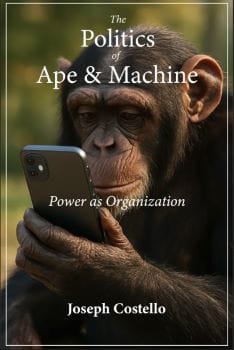Empire of AI, The Politics of Technology

Here’s a great interview with Karen Hao, author of Empire AI. It’s a nice little primer on the politics of AI, most especially its assured destruction of, or better, what’s left of democracy, if allowed to continue along this path. Also, she points out AI's tremendous environmental impact threatening more than democracy, exemplified by the knucklehead South African Boer or is it Bore, though I guess it's really Boar, throwing up unpermitted gas plants to fuel his latest megalomaniac fantasy. These people should not be tolerated, much less indulged.
However, it's best to understand what’s happening ain’t good for anyone, including the cult itself. Hao makes the following very excellent point of understanding how this is all being badly done, but it’s important to point out, the system she describes wasn't created by Tech, but one developed over the previous two centuries with industrial technologies:
"...technology is always a product of human choices. And different humans will have different blind spots. And if you give a small group of those people too much power to develop technologies that will affect billions of people's lives, inevitably that is structurally unsound. We should not be allowing small groups of individuals to concentrate such profound influence on society when you cannot expect any individual to have such great vision into everything that's happening in the world and perfectly understand how to craft a one-size fits-all technology that ends up being profoundly beneficial for everyone. It just doesn't make sense at all."
No sense at all!
Democracy is essential for healthy tech development and democracy isn’t five corporations in the Valley or a handful of individuals who raised money from these same corporations to gather in DC.
A second thought is essential to understanding tech evolution. I first talked about this a decade ago in my short book The Politics of Technology (download free):
"Because when you, if you, continue to pursue a scaling approach and you're the only one with all of the AI experts in the world, you persuade people into believing this is the only path and therefore you continue to monopolize this technology because it locks out anyone else from playing that game. And also, because path dependence, these companies are actually not that nimble, they end up, the way they organize themselves, it's not so easy for them to just immediately swap to a different approach. They end up putting in motion all the resources, all of the training runs, so on and so forth over the course of months, and then they just have to run with it."
Once a technology is adopted and today it can be relatively rapid, it constrains future technological development. Just as importantly, any person who specializes in a certain technology is just as constrained in understanding alternatives as someone who knows nothing.
Don’t believe the hype, AI is a mess, a destructive one. Yet, we have no politics. The power around AI is centrally organized, while necessary alternatives are scattered, impotent pieces. This could be one of the great ages of human history, at the moment, it’s very hard to bet on that.

